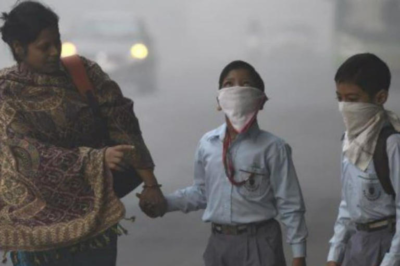
Key Points:
- Supreme Court directed the Commission for Air Quality Management (CAQM) to consider reopening schools in Delhi-NCR, suspended due to severe air pollution.
- The decision might allow physical classes to resume by Wednesday, benefiting students missing mid-day meals and struggling with virtual learning.
- The court criticized authorities for failing to enforce anti-pollution measures and ordered action against lapses.
Why Were Schools Closed and What’s Next?
Why were schools shut down in the first place? The region has been grappling with hazardous air pollution levels, prompting the implementation of Graded Response Action Plan (GRAP) IV restrictions. These measures included shutting down schools, banning construction activities, and restricting polluting vehicles. The Supreme Court expressed concern about the adverse impact on students, especially those without access to air purifiers or online learning tools, and called for immediate action to address these issues.
The CAQM is expected to decide on reopening schools within a day. If approved, physical classes could resume as early as Wednesday, providing much-needed relief to students and parents.
Broader Impact of Pollution and Court Orders
While the court pushed for reopening schools, it also highlighted the plight of daily wage laborers affected by GRAP IV restrictions. It directed states to use labor cess funds to support workers during the construction ban. Additionally, the court demanded stricter implementation of measures to curb pollution, such as limiting vehicle entry and construction activities.
Despite a slight improvement in the Air Quality Index (AQI) from ‘very poor’ to ‘poor,’ the Supreme Court declined to relax the restrictions entirely. Authorities must show consistent improvements before restrictions can be eased.
The Way Forward
As Delhi-NCR battles toxic smog, the focus remains on balancing public health and daily life. The reopening of schools depends on CAQM’s swift decision and effective pollution management. Meanwhile, the Supreme Court’s stern stance highlights the urgent need for authorities to take pollution control seriously, ensuring the well-being of students and the general public alike.









































Leave a Reply